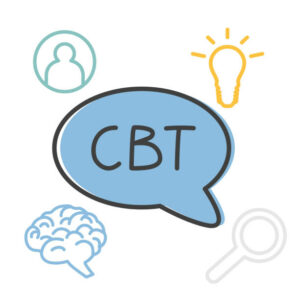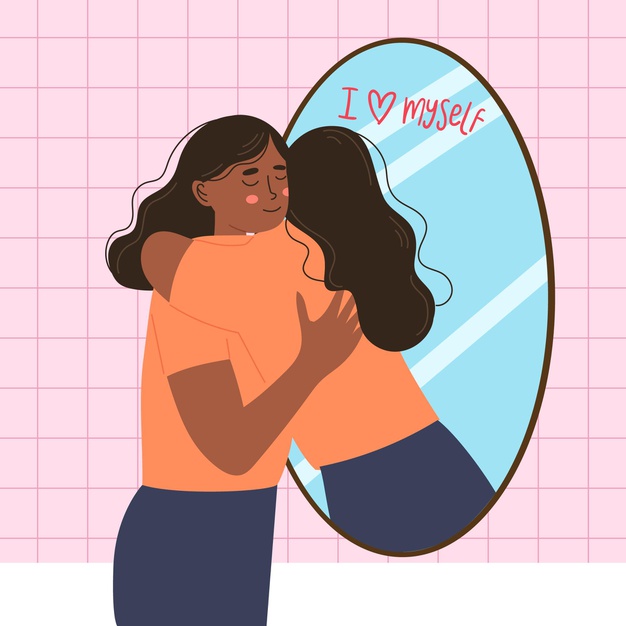Self-esteem is a critical part of our mental health. When we feel good about ourselves, we are more likely to take risks and be successful. However, when our self-esteem is low, it can be difficult to do anything. Many people struggle with low self-esteem for years before seeking help. If you are one of those people, know that you are not alone. There are many ways to improve your self-esteem with therapy. In this blog post, we will discuss some tips for building confidence and improving your self-image!
Contents
- 1 Defining Self Esteem
- 2 When To Seek Therapy For Self Esteem?
- 3 What Are The Types Of Self Esteem Therapy?
- 3.1 Psychodynamic therapy
- 3.2 Cognitive behavioral therapy
- 3.3 Group therapy
- 3.4 Client-centered therapy
- 3.5 Mindfulness-based therapy
- 3.6 Interpersonal therapy
- 3.7 Rational emotive behavioral therapy
- 3.8 Narrative therapy
- 3.9 Expressive art therapy
- 3.10 Bibliotherapy
- 3.11 Animal-assisted therapy
- 3.12 Nature therapy
- 4 Things To Consider
- 5 Conclusion
Defining Self Esteem
 Self-esteem is one of the most important, but also one of the most misunderstood, concepts in psychology. Simply put, self-esteem is how we feel about ourselves. It is our overall evaluation of our own worth. When we have healthy self-esteem, we feel good about ourselves and see ourselves as deserving of love, respect, and success. We believe that we are capable of meeting life’s challenges and achieving our goals. People with healthy self-esteem are usually confident and assertive. They have a positive outlook on life and tend to be successful in their endeavors.
Self-esteem is one of the most important, but also one of the most misunderstood, concepts in psychology. Simply put, self-esteem is how we feel about ourselves. It is our overall evaluation of our own worth. When we have healthy self-esteem, we feel good about ourselves and see ourselves as deserving of love, respect, and success. We believe that we are capable of meeting life’s challenges and achieving our goals. People with healthy self-esteem are usually confident and assertive. They have a positive outlook on life and tend to be successful in their endeavors.
On the other hand, people with low self-esteem often see themselves as unworthy of love, respect, and success. They believe that they are not good enough, smart enough, or attractive enough. They may be shy and withdrawn or overly critical of themselves. People with low self-esteem often have trouble taking risks and achieving their goals.
Self-esteem is a very crucial part of our lives whether we realize it or not. It essentially is the root of how we feel about ourselves which then trickles down into every other aspect of our lives. It is important to have healthy self-esteem so that we can feel good about ourselves, be confident, and take risks.
When To Seek Therapy For Self Esteem?
 There are some key signs that indicate it may be time to seek therapy for self-esteem. If you observe the following in yourself, it may be time to reach out for help:
There are some key signs that indicate it may be time to seek therapy for self-esteem. If you observe the following in yourself, it may be time to reach out for help:
- Frequently compare yourself to others and find yourself lacking
- Have trouble taking risks or achieving your goals
- Being critical of yourself and your appearance
- Have trouble taking risks or trying new things because you are afraid of failure
- Avoid social situations because you feel like everyone is judging you
- Find it difficult to be assertive or speak up for yourself
- Feeling like you are not good enough, smart enough, or attractive enough
If you are struggling with low self-esteem, know that you are not alone and there is help available. reach out to a therapist for help.
What Are The Types Of Self Esteem Therapy?
Fortunately, there are many different types of self-esteem therapy available. They all work to help you develop a more positive self-image and improve your confidence. Some of the most popular types of therapy include the following.
Psychodynamic therapy
First up, we have psychodynamic therapy. This type of therapy is based on the belief that our early childhood experiences play a big role in shaping our self-esteem. The therapist will help you to explore these experiences and understand how they have affected your self-image.
For example, if you had a parent who was always critical of you, you may have developed low self-esteem. Exploring this experience in therapy can help you to understand why you feel the way you do and how to change it.
Moreover, psychodynamic therapy also focuses on changing the way you see yourself. The therapist will help you to identify your negative thoughts and beliefs about yourself and work to change them. This can be a very effective way to improve your self-esteem.
Cognitive behavioral therapy

Cognitive behavioral therapy (CBT) is another popular type of self-esteem therapy. This approach focuses on altering the negative thoughts and beliefs that contribute to low self-esteem. The therapist will help you to identify these thoughts and beliefs and challenge them. For example, if you believe that you are not good enough, the therapist will help you to question this belief and develop a more positive view of yourself.
Within CBT, there are also different techniques that can be used to help you improve your self-esteem. One popular technique is called “positive self-talk.” This involves identifying your negative thoughts and replacing them with more positive ones. For example, if you are thinking “I’m such a loser,” you would replace this thought with something like “I am doing my best.”
Positive self-talk can be a very effective way to improve your self-esteem. It is also something that you can do on your own outside of therapy.
Group therapy
Another type of self-esteem therapy is group therapy. This approach involves meeting with other people who are also struggling with low self-esteem. Group therapy can be very beneficial because it allows you to share your experiences and feelings with others who understand what you are going through.
It can also be helpful to see that you are not alone in your struggle. Group therapy can provide support and encouragement from others who are going through the same thing. It may or may not be led by a therapist.
For example, there are many different types of self-esteem groups available, such as support groups, therapy groups, and 12-step programs.
Client-centered therapy
 This is the most traditional and commonly used type of therapy. It is based on the belief that each person has the ability to grow and change. The therapist’s role is to provide support and guidance as you work to improve your self-esteem.
This is the most traditional and commonly used type of therapy. It is based on the belief that each person has the ability to grow and change. The therapist’s role is to provide support and guidance as you work to improve your self-esteem.
Client-centered therapy focuses on your current experiences and feelings. The therapist will help you to explore these things in order to gain a better understanding of yourself. This understanding can be very helpful in improving your self-esteem.
For example, if you are feeling low because you were passed over for a promotion, the therapist will help you to explore these feelings. This exploration can help you to understand why you feel this way and how to change it.
Mindfulness-based therapy
Mindfulness is the practice of being present in the moment and accepting things as they are. This type of therapy can be very helpful for people with low self-esteem.
The therapist will help you to become more aware of your thoughts and feelings without judgment. This can be a very effective way to improve your self-esteem because it allows you to accept yourself as you are. It also consists of learning how to let go of negative thoughts and emotions.
Interpersonal therapy
Interpersonal therapy (IPT) is another type of self-esteem therapy. This approach focuses on your relationships with others. The therapist will help you to explore the ways that your relationships have affected your self-esteem.
For example, if you have a history of being in abusive relationships, the therapist will help you to understand how this has impacted your self-esteem. Interpersonal therapy can be very beneficial in improving your self-esteem by helping you to develop healthier relationships.
Rational emotive behavioral therapy
 Popular by its acronym REBT, rational emotive behavioral therapy is a type of self-esteem therapy that focuses on changing your thinking. The therapist will help you to identify your irrational thoughts and beliefs and replace them with more rational ones.
Popular by its acronym REBT, rational emotive behavioral therapy is a type of self-esteem therapy that focuses on changing your thinking. The therapist will help you to identify your irrational thoughts and beliefs and replace them with more rational ones.
For example, if you have the belief that you are not good enough, your therapist will help you to challenge that belief and develop a more rational thought such as, “I am doing my best.” Similarly, if you have a tendency to compare yourself to others, your therapist will help you to understand that everyone is unique and has different strengths and weaknesses.
REBT is a practical, action-oriented therapy that has been shown to be effective in treating low self-esteem.
Narrative therapy
Narrative therapy is an approach to self-esteem therapy that focuses on the stories you tell yourself about your life. The therapist will help you to identify the negative messages you have internalized about yourself and work with you to develop a more positive and empowering narrative.
For example, if you were raised in a household where you were told that you were not good enough, your therapist will help you to identify that message and work with you to develop a more positive self-narrative. Moreover, they will help you to understand that the story you tell yourself about your life does not have to be fixed or static, but can be changed. These mechanisms make for a more confident you.
Expressive art therapy
 This type of therapy has emerged as one of the most successful methods for helping people to improve their self-esteem. It involves using art as a means of communication and self-expression. This can help you to explore your feelings, thoughts, and emotions in a safe and non-threatening way. It encompasses five major types of art forms:
This type of therapy has emerged as one of the most successful methods for helping people to improve their self-esteem. It involves using art as a means of communication and self-expression. This can help you to explore your feelings, thoughts, and emotions in a safe and non-threatening way. It encompasses five major types of art forms:
- art
- music
- dance/movement
- drama
- writing
Expressive art therapy can help you to build self-confidence by providing a way for you to express yourself freely and creatively. It can also help you to develop a greater understanding of yourself and your relationships with others. It also helps you to identify negative thought patterns and behaviors that are affecting your self-esteem. It can also help you to develop new and positive ways of thinking and behaving. This type of therapy can be an extremely effective way of boosting your confidence and self-esteem.
Bibliotherapy
Bibliotherapy refers to the use of books in therapy. It can be an effective way to improve self-esteem, build confidence, and learn new coping skills.
Looking for books that are specifically about self-esteem or confidence can be a good start. There are many titles to choose from, so ask your therapist for recommendations. Choose a book that resonates with you. If you can relate to the characters or story, you’ll be more likely to get something out of it.
Choose a book that is appropriate for your reading level. If you’re not a confident reader, look for books with large print or audio versions. Bibliotherapy can be a great way to improve your self-esteem. By choosing the right book and getting involved in the story, you can build confidence and learn new skills. Talk to your therapist about bibliotherapy and see if it’s right for you.
Animal-assisted therapy
As suggestive as the name may be, animal-assisted therapy (AAT) is not about cuddling with puppies (although that can be part of it). AAT is a type of therapy that uses animals to help people achieve their treatment goals. It majorly uses domestic animals such as dogs, cats, rabbits, and guinea pigs.
AAT can be very helpful in treating low self-esteem. It can help you to build confidence, learn new skills, and develop a more positive outlook on life. It can also help you to feel less alone and isolated. AAT can be an effective way to improve your self-esteem.
AAT is usually provided in a group setting, which can help you to interact with others and form positive relationships. It can also help you to learn how to care for another living creature, which can be a valuable experience. It can even be helpful to treat a variety of conditions, including anxiety, depression, and PTSD.
Nature therapy
 Lastly, nature therapy is the use of nature in therapy. This can involve anything from walking in the park to gardening to hiking. It is a form of therapy that is based on the belief that humans are innately connected to nature and that contact with nature can be beneficial for our mental and physical health.
Lastly, nature therapy is the use of nature in therapy. This can involve anything from walking in the park to gardening to hiking. It is a form of therapy that is based on the belief that humans are innately connected to nature and that contact with nature can be beneficial for our mental and physical health.
Nature therapy can help you to improve your self-esteem by providing a way for you to connect with the natural world. It can also help you to reduce stress, anxiety, and depression. It can even help you to sleep better. Nature therapy can be an effective way to improve your self-esteem and overall well-being.
There are many different types of therapy that can be helpful in improving self-esteem. It is important to find a type of therapy that resonates with you and that you feel comfortable with. Talk to your therapist about different types of therapy and see if one is right for you. Remember, there is no shame in seeking help.
Things To Consider
If you are considering self-esteem therapy, it is important to keep in mind the following points.
- Firstly, therapy takes time and effort. Therapy is not a magic cure-all. It will not solve all of your issues within a few hours. It is also not a quick fix. In order to see results, you will need to be committed to the process.
- In order to ensure maximum effectiveness, it is important that you feel comfortable with your therapist. If you do not feel comfortable, it is unlikely that you will benefit from the therapy.
- Moreover, therapy requires you to be open and honest. You will need to be willing to share your thoughts and feelings with your therapist.
- Therapy is confidential. Anything you say in therapy will be kept between you and your therapist. It is essential to feel safe and secure in order to benefit from therapy.
- Lastly, therapy is not just about what happens within a session. To see actual results, you will need to practice what you have learned in therapy outside of the session.
If you are considering self-esteem therapy, talk to your therapist about what to expect. They can help you to decide if it is a right choice for your needs or not.
Conclusion
Conclusively, we can say that self-esteem therapy is a form of therapy that can be used to improve self-esteem. It can help you to understand yourself better, identify negative thought patterns, and develop new and positive ways of thinking. All these are effective in their own way and can help you to improve your self-esteem.
If you or someone you know is looking for psychological help, Therapy Mantra is here for you. We are the leading providers of online therapy and counseling. Our team of highly trained and experienced therapists can provide assistance at the most affordable rates. Contact us today to learn more about our services. You may also visit our website to book an online therapy session or download our free Android or iOS app for more information.


